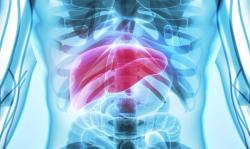
OR WAIT null SECS
FDA Approves Iptacopan (Fabhalta) for Paroxysmal Nocturnal Hemoglobinuria
The approval was based on data from the APPLY-PNH trial and APPOINT-PNH study, which showed iptacopan was superior for hemoglobin improvement in the absence of red blood cell transfusions and in transfusion avoidance rate compared to patients who stayed on anti-C5 treatments.
The US Food and Drug Administration (FDA) has approved iptacopan (Fabhalta) for the treatment of adults with paroxysmal nocturnal hemoglobinuria (PNH), making it the first and only FDA-approved Factor B inhibitor of the immune system’s complement pathway.
Announced on December 6, 2023, the approval is supported by data from the phase 3 APPLY-PNH trial in patients with residual anemia (hemoglobin < 10 g/dL) despite prior anti-C5 treatment and data from the phase 3 APPOINT-PNH study in complement inhibitor-naïve patients.1
Results showed iptacopan was superior to anti-C5s for increasing hemoglobin levels in the absence of red blood cell transfusion, also demonstrating effectiveness in complement inhibitor-naïve individuals.1
“An efficacious oral treatment with a demonstrated safety profile could be practice-changing for physicians and help relieve burdens experienced by people with PNH,” said Vinod Pullarkat, MD, MRCP, clinical professor in the department of hematology and hematopoietic cell transplantation at the City of Hope Comprehensive Cancer Center.1 “In clinical studies, iptacopan was superior to anti-C5s in hemoglobin improvement in the absence of RBC transfusion and transfusion avoidance rate, and also effective in complement inhibitor-naïve individuals, by providing clinically meaningful hemoglobin-level increases without the need for blood transfusions.”
An oral Factor B inhibitor of the alternative complement pathway of the immune system, iptacopan provides comprehensive control of red blood cell destruction within and outside the blood vessels. Along with its indication for PNH, iptacopan is currently in development for a range of other complement-mediated diseases including immunoglobulin A nephropathy, C3 glomerulopathy, immune complex membranoproliferative glomerulonephritis, and atypical hemolytic uremic syndrome.1
A phase 3, randomized, multinational, multicenter, active-comparator controlled, open-label trial, APPLY-PNH assessed the efficacy and safety of twice-daily oral iptacopan monotherapy 200 mg and sought to demonstrate its superiority compared to anti-C5 antibody treatments eculizumab and ravulizumab in adult patients with residual anemia despite a prior stable regimen of anti-C5 treatment.1,2
For inclusion, patients were required to be ≥ 18 years of age, diagnosed with PNH, on a stable regimen of anti-C5 antibody treatment with either eculizumab or ravulizumab for at least 6 months prior to randomization, have mean hemoglobin level <10 g/dL, and be vaccinated against Neisseria meningitidis, Streptococcus pneumoniae, and Haemophilus influenzae. In total, the trial enrolled 97 patients who were randomized in an 8:5 ratio to treatment with twice-daily oral iptacopan monotherapy, or intravenous anti-C5 therapies.1,2
A phase 3, multinational, multicenter, open-label, uncontrolled single-arm study, APPOINT-PNH assessed the efficacy and safety of twice-daily oral iptacopan monotherapy 200 mg in adult patients who were naïve to complement inhibitor therapy. For inclusion, patients were required to be ≥ 18 years of age, be diagnosed with PNH, have mean hemoglobin level <10 g/dL, have LDH > 1.5 x Upper Limit of Normal, and be vaccinated against Neisseria meningitidis, Streptococcus pneumoniae, and Haemophilus influenzae. In total, the trial enrolled 40 patients who received twice-daily, oral iptacopan monotherapy.1,3
The 24-week core treatment periods in APPLY-PNH and APPOINT-PNH trials showed in patients with sustained increase of hemoglobin levels ≥ 2 g/dLa from baseline in the absence of transfusions, 82.3% of anti-C5-experienced iptacopan patients responded compared to 0% for anti-C5 (P < .0001). Additionally, 77.5% of complement inhibitor-naïve patients treated with iptacopan achieved this outcome.1
Among patients with sustained hemoglobin level ≥ 12 g/dLa in the absence of transfusions, 67.7% of anti-C5-experienced iptacopan patients responded compared to 0% for anti-C5 (P < .0001). The ransfusion avoidance rate was 95.2% for anti-C5-experienced iptacopan patients compared to 45.7% for anti-C5 (P < .0001).1
In the APPLY-PNH trial, the most commonly reported adverse reactions were headache, nasopharyngitis, diarrhea, abdominal pain, bacterial infection, nausea, and viral infection. Serious adverse reactions were reported in 2 patients receiving iptacopan, including pyelonephritis, urinary tract infection, and COVID-19.1
In the APPOINT-PNH trial, the most commonly reported adverse reactions were headache, viral infection, nasopharyngitis, and rash. Serious adverse reactions were reported reported in 2 receiving iptacopan, including COVID-19 and bacterial pneumonia.1
“The U.S. approval of Fabhalta is an extraordinary moment for people living with PNH, their loved ones and the healthcare providers who care for them,” said Victor Bultó, President US, Novartis.1 “This new, effective oral medicine may mean that patients can reset their expectations of living with PNH, a chronic and life-altering blood disease. As Novartis continues to focus on conditions with unmet patient need, we are exploring the potential of Fabhalta in other complement-mediated diseases – with an ultimate goal to drive meaningful change for patients.”
References:
- Novartis. Novartis receives FDA approval for Fabhalta® (iptacopan), offering superior hemoglobin improvement in the absence of transfusions as the first oral monotherapy for adults with PNH. News. December 6, 2023. Accessed December 6, 2023. https://www.novartis.com/news/media-releases/novartis-receives-fda-approval-fabhalta-iptacopan-offering-superior-hemoglobin-improvement-absence-transfusions-first-oral-monotherapy-adults-pnh
- Clinicaltrials.gov. Study of Efficacy and Safety of Twice Daily Oral LNP023 in Adult PNH Patients With Residual Anemia Despite Anti-C5 Antibody Treatment (APPLY-PNH). November 28, 2023. Accessed December 6, 2023. https://clinicaltrials.gov/study/NCT04558918
- Clinicaltrials.gov. Study of Efficacy and Safety of Twice Daily Oral Iptacopan (LNP023) in Adult PNH Patients Who Are Naive to Complement Inhibitor Therapy (APPOINT-PNH). November 15, 2023. Accessed December 6, 2023. https://clinicaltrials.gov/study/NCT04820530


